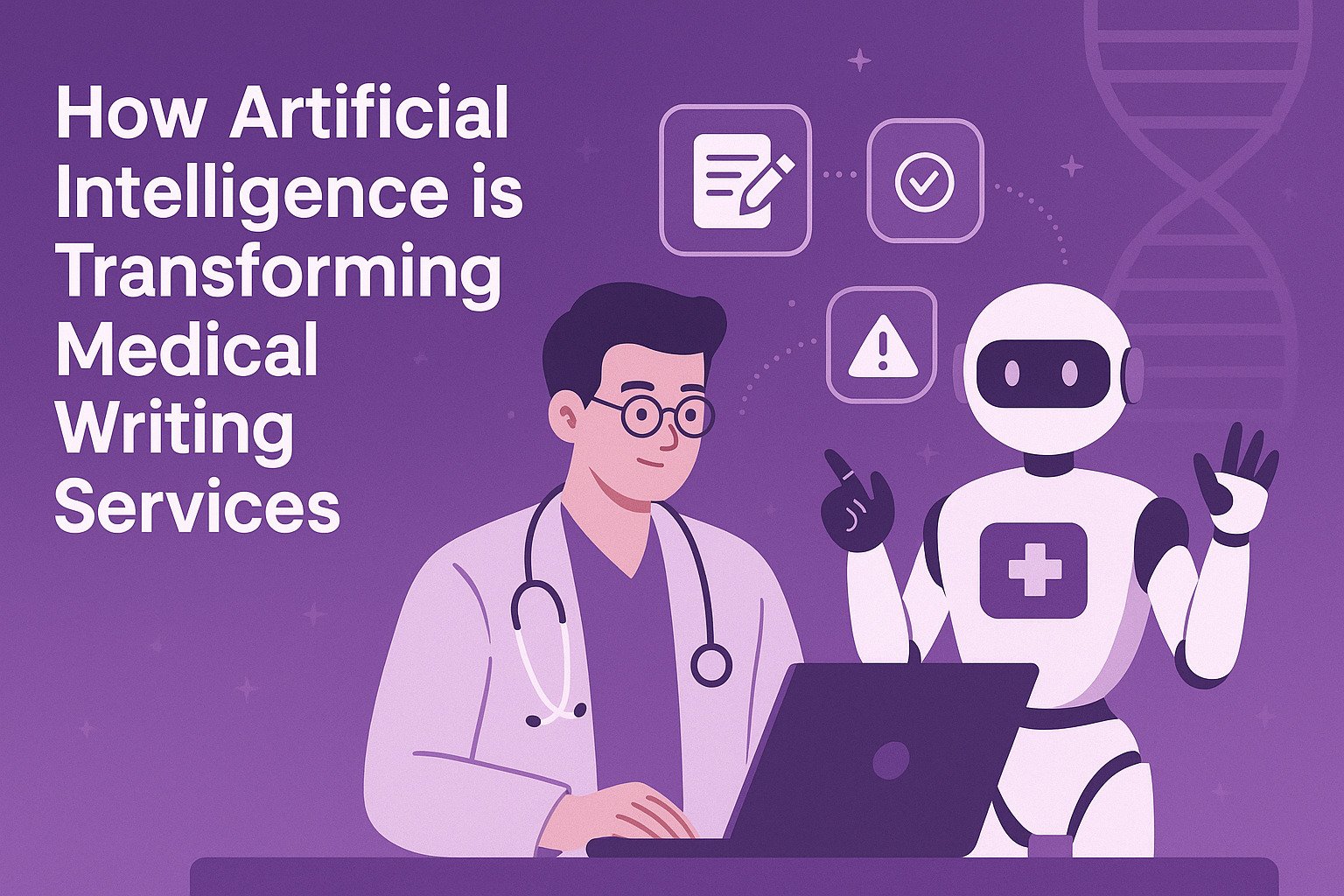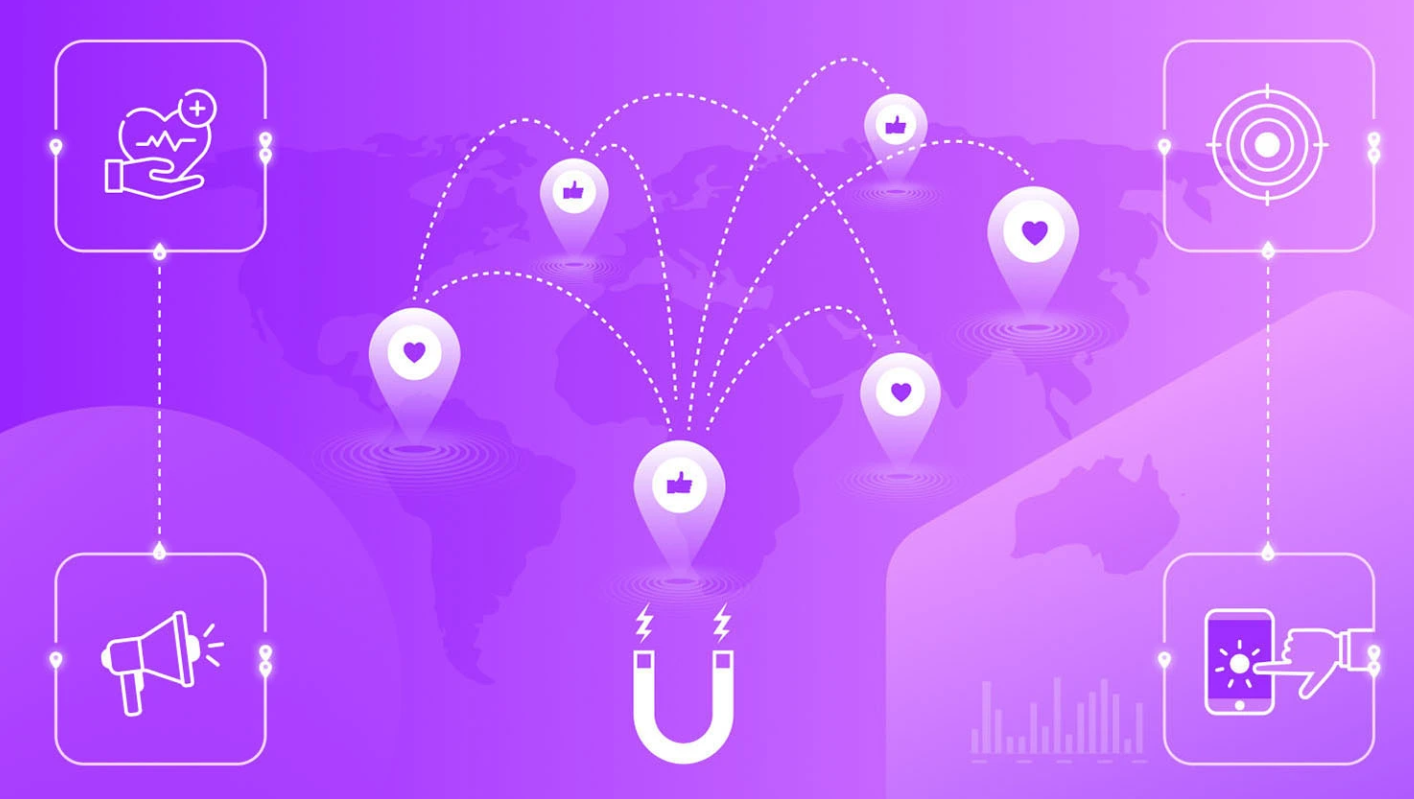In recent years, Artificial Intelligence (AI) has become a driving force behind innovation in healthcare from diagnostics to drug discovery, patient management, and now, medical writing services. As the life sciences industry continues to generate massive volumes of data, the demand for accurate, compliant, and timely documentation has grown significantly. This is where AI is reshaping how a medical writing company or medical writing agency operates, offering smarter, faster, and more precise ways to create high-quality scientific content.
1. The Growing Importance of Medical Writing in Healthcare and Pharma
Medical writing is much more than crafting scientific documents. It bridges the gap between complex medical research and clear communication. Whether it’s clinical trial reports, regulatory submissions, manuscripts, or patient education materials, medical writing services ensure accuracy, compliance, and clarity.
Traditionally, medical writers relied heavily on manual processes reviewing literature, analyzing data, and ensuring adherence to regulatory standards. However, with the explosion of data in clinical research, the manual approach has become time-consuming and prone to human error. AI now offers a transformative solution, allowing medical writers to focus on strategic and interpretative work rather than repetitive tasks.
2. How AI is Revolutionizing Medical Writing
a. Automated Data Analysis and Summarization
AI-powered tools can now analyze vast amounts of clinical data, identify trends, and generate summaries within minutes. This automation significantly reduces the time needed to draft clinical study reports or regulatory submissions.
For instance, AI algorithms can scan thousands of research papers, extract relevant findings, and summarize them into concise, structured content something that would take human writers weeks to complete.
b. Enhanced Accuracy and Compliance
Accuracy is non-negotiable in medical writing. A single error can have serious regulatory implications. AI helps medical writing agencies minimize such risks by automatically checking data consistency, verifying citations, and ensuring that the language adheres to regulatory and ethical standards (such as ICH, GCP, or FDA guidelines).
Some advanced AI tools can even flag potential compliance issues before submission, ensuring that documents meet the latest global standards.
c. Natural Language Generation (NLG)
AI’s natural language generation capabilities are changing how scientific content is produced. NLG tools can convert structured data from clinical trials into well-written narratives. For example, AI can take statistical outputs and turn them into human-readable sentences that clearly explain results and implications.
However, while NLG can speed up drafting, human expertise remains crucial. Professional writers from a medical writing company refine the AI-generated drafts to ensure contextual accuracy, clarity, and tone.
d. Smarter Literature Review and Research Support
Literature review is a cornerstone of any medical writing project. AI tools like semantic search engines can now perform intelligent searches, identifying relevant publications based on context, not just keywords. This makes it easier for writers to gather the most current and high-quality evidence for their content.
AI also assists in citation management tracking references, cross-checking sources, and ensuring proper formatting.
e. Quality Control and Editing Assistance
AI-based grammar and style checkers go beyond traditional proofreading. They now understand medical terminology, preferred editorial styles, and regulatory tone. They help maintain consistency across large volumes of documents especially beneficial for global medical writing agency that handle multiple projects simultaneously.
3. The Human-AI Partnership in Medical Writing
While AI offers speed and precision, it doesn’t replace human expertise. it enhances it. The real transformation comes from collaboration between medical writers and AI tools.
Experienced writers bring a deep understanding of medical science, ethical nuances, and regulatory landscapes things AI can’t replicate fully. What AI does best is eliminate repetitive tasks, so writers can focus on strategy, storytelling, and interpretation.
A skilled medical writing company leverages AI as a productivity partner, ensuring faster turnaround without compromising quality or compliance.
4. Key Benefits of AI-Driven Medical Writing Services
-
Improved Efficiency: Faster drafting and review cycles.
-
Greater Accuracy: Automated error detection and data validation.
-
Consistency: Uniform terminology and style across documents.
-
Cost-Effectiveness: Reduced manual workload and quicker project delivery.
-
Scalability: Easier to manage large volumes of documents for global submissions.
AI empowers medical writing agencies to meet tighter deadlines while maintaining scientific rigor and regulatory accuracy, a win-win for clients in pharma, biotech, and healthcare sectors.
5. Challenges and Ethical Considerations
Despite its advantages, AI in medical writing comes with challenges. Data privacy, intellectual property rights, and potential biases in AI algorithms remain concerns. Moreover, AI can generate technically correct but contextually inaccurate content if not properly supervised.
Therefore, it’s essential that medical writing companies maintain strong human oversight and transparent processes. Every AI-assisted output must undergo thorough review and validation by qualified medical professionals and writers.
6. The Future of AI in Medical Writing
Looking ahead, AI’s role in medical writing will only expand. Advanced generative models will be capable of drafting comprehensive regulatory documents, scientific manuscripts, and even patient communication materials with remarkable precision.
However, the most successful medical writing services will be those that embrace AI responsibly using it not to replace writers, but to empower them.
As the line between technology and human intelligence continues to blur, the future of medical writing lies in synergy where AI handles data-driven efficiency, and human experts deliver empathy, insight, and scientific integrity.
Final Thoughts
AI is not just a technological upgrade; it’s a paradigm shift for the medical writing industry. By integrating AI into workflows, a medical writing company can deliver faster, more reliable, and higher-quality documentation.
But at its core, medical writing remains a human craft one that blends science with clarity, and data with understanding. AI is simply making that craft smarter, sharper, and more impactful than ever before.















